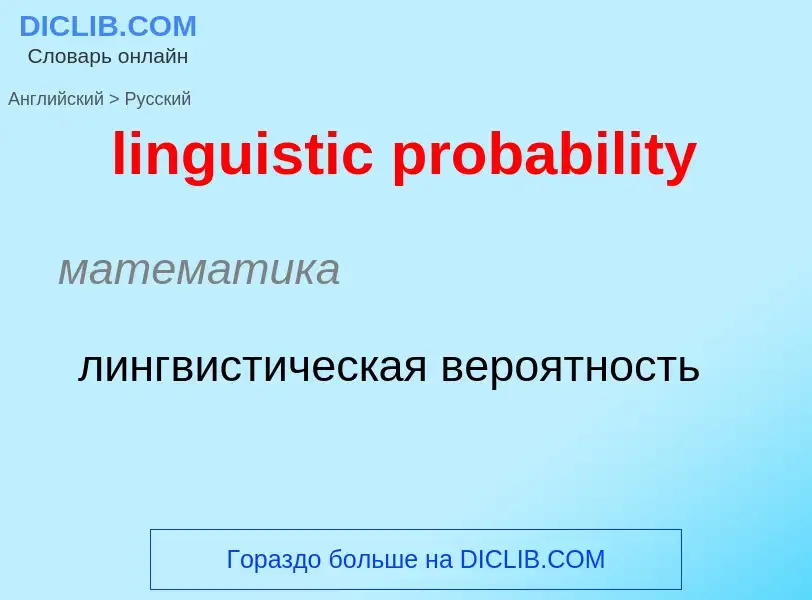Translation and analysis of words by ChatGPT artificial intelligence
On this page you can get a detailed analysis of a word or phrase, produced by the best artificial intelligence technology to date:
- how the word is used
- frequency of use
- it is used more often in oral or written speech
- word translation options
- usage examples (several phrases with translation)
- etymology
linguistic probability - translation to russian
математика
лингвистическая вероятность
[imprɔbə'biliti]
существительное
общая лексика
невероятность
неправдоподобие
невероятность, неправдоподобие
[prɔbəbə'listik]
общая лексика
вероятностный
прилагательное
общая лексика
вероятный, вытекающий из теории вероятностей
существительное
общая лексика
вероятный
вытекающий из теории вероятностей
религия
пробабилистичный
Wikipedia
In mathematics, a probability measure is a real-valued function defined on a set of events in a probability space that satisfies measure properties such as countable additivity. The difference between a probability measure and the more general notion of measure (which includes concepts like area or volume) is that a probability measure must assign value 1 to the entire probability space.
Intuitively, the additivity property says that the probability assigned to the union of two disjoint events by the measure should be the sum of the probabilities of the events; for example, the value assigned to "1 or 2" in a throw of a dice should be the sum of the values assigned to "1" and "2".
Probability measures have applications in diverse fields, from physics to finance and biology.

![0-521-62128-3}} [https://books.google.com/books?id=Q1AUhivGmyUC&pg=PA149 page 149]</ref> 0-521-62128-3}} [https://books.google.com/books?id=Q1AUhivGmyUC&pg=PA149 page 149]</ref>](https://commons.wikimedia.org/wiki/Special:FilePath/Maxwell-Distr.png?width=200)
